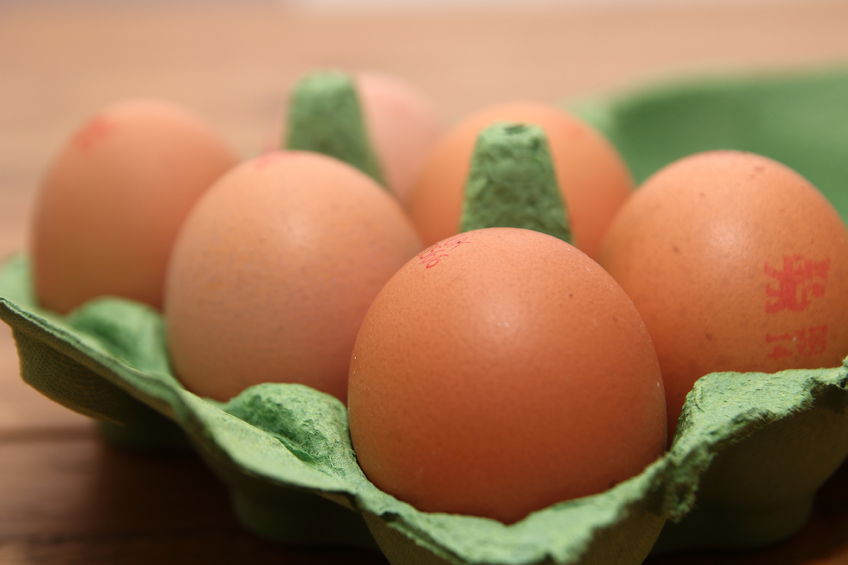
A leading bakery manufacturer says it is looking to source more eggs from British producers in the wake of Brexit.
London Stock Exchange AIM-listed Finsbury Food Group outlined its plans for the United Kingdom's withdrawal from the European Union when it published its financial results.
The latest accounts show a 65.7 per cent fall in pre-tax profits to £4.5 million - a result connected with the closure of the firm’s loss making pastry business, Grain D’Or.
Comparable sales increased by 2.4 per cent to £290.2 million, boosted by strong demand for a Mary Berry cakes range and Batman and Paw Patrol cakes.
On Brexit, the company said that the majority of trading was in the United Kingdom. However, it said in a statement: "There are sales into Europe, which includes to Lightbody Europe, our 50 per cent subsidiary. A material proportion of bakery commodities such as dairy and egg are sourced in Europe
"Any tariffs on trade, therefore, will have a bearing on the UK bakery market, the UK manufacturing industry and the group," it said. "Contingency planning is already in place looking at alternative UK sources of products."
More British
In an interview with London Evening Standard, the company's chief executive, John Duffy, said a number of butter and egg products were imported from the continent, including Holland. He said he was now looking at getting more from Britain.
“I don’t ever envisage a scenario where we can’t bake cakes and have them on supermarket shelves," he said.
"However, in the event of a hard Brexit, we may have to put up the price of some products if they contain certain ingredients that become more expensive once we leave the EU.”
The company says it is likely to face higher logistics costs and administration costs due to increased custom border checks, and it says it will require higher stock levels due to lengthening delivery times for ingredients.
"There is significant uncertainty over the type of Brexit deal the UK will agree with its European neighbours," said the company in its statement.
"Whatever the structure of the final deal, anything different from the current status quo is likely to have an impact on both the food manufacturing industry and on the group.
"The group is also likely to face higher logistic costs and administration costs due to increased custom border checks and will require higher stock levels due to lengthening delivery times for ingredients."
Low skilled labour
The company expressed concern about the availability of workers following Brexit - a concern that has been raised by others in the food and farming industry.
"The food manufacturing industry, including Finsbury, is typically reliant on low skilled labour. Labour strategies are being developed to retain and develop existing workers, attracting and hiring new workers and reducing labour whilst boosting productivity with its capital investment program.
"Finsbury is not being complacent in its response to likely Brexit scenarios and has a cross functional team preparing a number of strategies in order to minimise the impact of Brexit," said the statement.
Egg industry leaders have expressed their own concerns about continued availability of labour after the UK leaves the UK.
However, if Finsbury and other food manufacturers seek to source more home-produced eggs as a result of Brexit, it will be something that the UK egg industry has been seeking to achieve for some time.
British eggs
Calls for UK food manufacturers to use British eggs have been particularly vocal following a series of food scare in continental Europe.
In the wake of the fipronil scandal, when a banned chemical was found to have been used in a red mite treatment for laying hens in European countries, British Lion Egg Processors criticised what it saw as double standards.
It said that, whilst retailers ensured that shell eggs were British Lion, foreign egg was being imported for use in many food products.
Ian Jones, chairman of British Lion Egg Processors, said: “This is just the latest of a number of food safety issues connected to eggs produced outside of the UK in recent years.
"Consumers clearly want retailers and food manufacturers to use good quality British ingredients that are produced to high standards of food safety, but in some prepared foods this is not the case.
“As we approach Brexit, shoppers are growing increasingly concerned about the ingredients used in manufactured food and now more than ever want and deserve transparency on food packaging.
He added: "The egg industry believes that this is a great opportunity for retailers to listen to the concerns of their customers and reassure them by specifying the use of British eggs and using the ‘Made with British Lion eggs’ logo on packs.”
